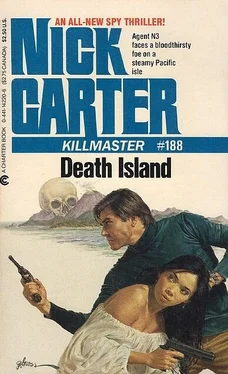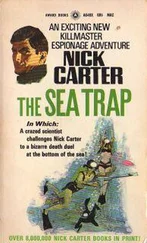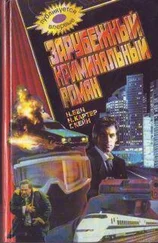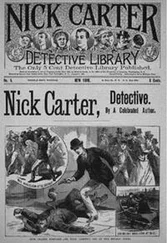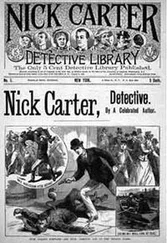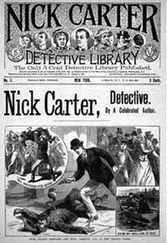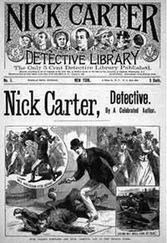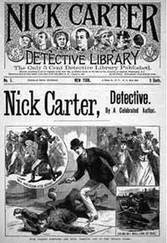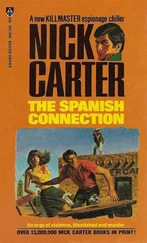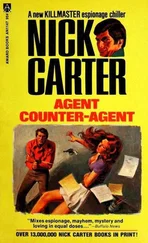He worked his way parallel to the beach, taking great care to make absolutely no noise, although the crash of the surf coming up on the beach was loud enough to drown out practically any sound.
It took Carter nearly fifteen minutes to work his way through the thick undergrowth to a spot opposite the helicopter. It did not look as if the machine had been damaged. There were five Chinese Communist soldiers dressed in World War II Japanese Army uniforms. One of them sat with his back against the landing gear, one stood by the water’s edge on the far side of the machine, and the other three stood together on the side closest to Carter.
Carter made sure the safety was off and that a round was in the M-16’s firing chamber. He flipped the selector switch to single shot, then settled down on his right heel, his left elbow supported by his left knee, the weapon’s sling wrapped around his shoulder and wrist.
There could be no mistakes, he told himself as he brought the soldier by the water’s edge into his sights. He brought the barrel down and to the right, quickly lining up with the man leaning against the landing gear. Then he flipped the selector switch to full automatic as he brought the weapon up and around to take in the three men standing.
The first two shots would come dangerously close to the helicopter. Depending upon which way the nearest three jumped, they would either be clear of the machine, or they would be right in line with it.
There was no other option. It was either this way or he would lose Governor Rondine and Gabrielle.
He pushed the selector switch back to single fire and once again lined up with the man at the water’s edge.
He had just started to squeeze, when the soldier spun around, bringing up his rifle.
Something was happening down the beach in the direction Carter had left Tieggs.
One of the soldiers nearest Carter shouted something, and the soldier leaning against the chopper’s landing gear started to get up.
Carter squeezed off one shot that hit the soldier by the beach in the spine, doubling him over before he went down.
He aimed at the soldier by the landing gear, fired one shot that hit him in the leg and brought him down, then he fired two more shots, one hitting the man in the shoulder, the other taking off the right side of his head.
It all happened in barely a few seconds, and Carter flipped the selector switch over to full automatic as he brought the weapon around.
The other three soldiers had turned in the direction of the shots, and Carter opened fire, sweeping right across them, the M-16’s slugs ripping a bloody dotted line across their chests.
“I figured you might need a little diversionary tactic,” Tieggs said as Carter helped him strap into the left-hand seat of the helicopter.
Carter looked at him. Tieggs was a good man. Among the best Carter had run into in his career. “They had rifles. You had a handgun.”
“They would never have hit me. The Chinese are all bad shots anyway.”
Carter shook his head. “Dumb bastard,” he said, laughing. He slammed the door and hurried around to the right side. He climbed up and strapped in as Tieggs painfully flipped the master switch, cracked the throttle, and hit the starter.
The engine turned over, caught, and the rotors began swinging. Slowly at first, but gathering speed. Tieggs took the controls in his left hand, his feet on the pedals, and he glanced at Carter.
“Is your life insurance up-to-date? Here goes nothing,” Tieggs said, and they lifted raggedly off the sand, the wind carrying them dangerously close to the treetops along the beach before he got them straightened out with a cry of pain.
Carter gritted his teeth but said nothing. Tieggs was a damned good man.
They swung out over the water, then headed north directly toward Hiva Faui, Tieggs cranking the power full.
“Let’s set down at the receiver station,” Carter said.
Tieggs glanced at him. Sweat was pouring from his brow. He nodded.
“We’ll have the medics give you something to keep you going. I’ll need my clothes and some more ammunition.”
They hit an air pocket, and Tieggs nearly lost it but recovered nicely. He grinned weakly. “What I think I need is a couple of pints of O positive. Might make a difference.”
Carter was about to ask Tieggs if he wanted him to take over the controls when the pilot stiffened and nodded toward the north. Carter looked out the Plexiglas.
There were at least a hundred outriggers of various sizes, each filled with natives, heading north through the large waves.
Tieggs swooped a little lower so that they came right over the center of the flotilla. The men in the boats looked up. Some of them shook their fists, others waved their machetes menacingly skyward. A few even shot arrows up at them.
Then they passed them and were climbing again.
“They’re on their way to attack the base!” Tieggs said.
“Let’s go back,” Carter said, looking out over the water.
“What?”
“Let’s go back over them. Low. Right on top of them. Let’s see if we can discourage a few of them.”
“Have you seen the size of the waves they’re paddling through, for Christ’s sake?”
“I’ve seen them,” Carter said. He opened the door, and the wind took it back with a bang. The cabin was filled with wind.
Tieggs swooped around and slowed down to cut some of the wind in the cabin. Carter had pulled out the M-16.
“Get right down on top of them,” Carter said. “If we can stop the attack here and now, we just might save a lot of lives... our people as well as theirs.”
They came down barely above wave height and hovered, the open door on Carter’s side facing toward the oncoming canoes.
Carter took careful aim at the lead canoe and squeezed off a short burst that kicked up water over the bow.
Tieggs pulled back up, then came down again just ahead of the canoes, and Carter fired off a few more short bursts.
The natives were all shouting and screaming now. Some of them were shooting arrows, and a couple even threw spears. But they had stopped moving and were simply riding up and down with the waves, some of the paddlers merely holding their bows into the wind.
“They’ll wait until we’re gone and then continue,” Tieggs shouted. “Unless you kill them all.”
Carter looked back at him. Tieggs was right. He nodded. “Let’s get back to the receiver station. At least we can warn them.” He managed to pull the door closed while they were stationary, and then Tieggs brought them around and back up to cruising altitude.
Before they had gone very far, Carter looked back over his shoulder at the outriggers. The natives were once again bent to the task of getting to Hiva Faui.
Even without the constant goading that the Chinese projection system gave to the natives, they would continue to attack the receiver station for a long time to come unless someone was brought in to work with them. It would have to be done very soon. Possibly even using the same visual propaganda techniques that the Chinese used to incite them to their attacks in the first place.
Smoke rose high into the sky in ragged plumes from the far end of Hiva Faui. It was somewhere in or around the town, Carter guessed. It was anyone’s guess what was happening there with the Chinese now that the base had been destroyed and the governor apparently fled.
There were armed technicians at the main gate and at various spots around the perimeter fence of the receiver station, and when the helicopter set down on the grass in front of the administration building, the station manager, Justin Owen, came running.
Before the rotors had completely stopped, Carter jumped out and hurried around to Tieggs’s side.
Читать дальше
